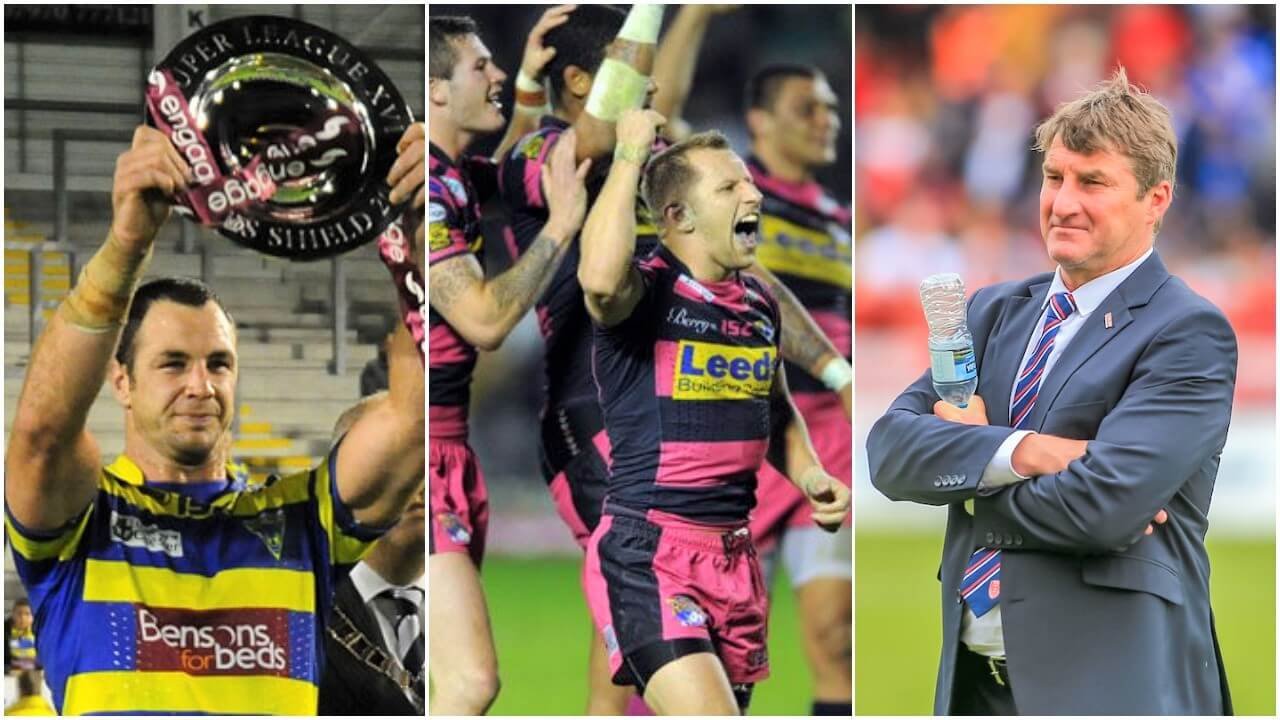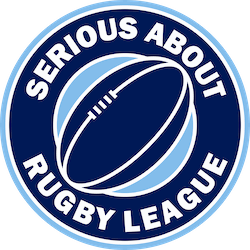
From the 2025 season promotion and relegation will be no more and IMG’s grading system will determine who is in Super League. It’s a somewhat controversial change that will see a number of now well-documented off-the-field factors determine which teams will make up the top-flight of our domestic game.
But as many rugby league fans know, it’s not the first time we have seen this. In 2009 Super League began the process of overhauling the competition in an attempt to improve the standard of the sport both on and off the field, much like now. ‘Licensing’ would determine Super League’s participating teams, a process that graded each club on their stadium facilities, finance and business performance – sound familar?
Those awarded a three-year license saw the threat of relegation removed, with the RFL eager to see teams invest in developing their infrastructure rather than panic buy in the short-term to avoid falling through the Super League trap door.
There was an increase in the number of teams, something we aren’t currently expected to see this time around, with Salford City Reds and Celtic Crusaders added to make a 14-team competition. The play-offs were also increased, another change that’s not expected for 2025, with the top eight teams having a shot at Old Trafford in a format that mimicked the NRL.
AND THEN there was the introduction of a new feature called CLUB CALL. Club Call was a somewhat bizarre addition to the rules that initially went under the radar due to the fallout from the major structural changes. The idea of Club Call was to ‘reward’ the highest-ranked team from the regular season table after week one of the play-offs. This involved one of the league’s top two teams choosing their opponents in week three, i.e., the team they would hopefully beat to progress to the Grand Final.
In its first year Club Call was discussed but did not dominate the headlines as Leeds chose to play Catalans. The Rhinos edged out their French counterparts 27-20 in a result that was closer than many had predicted. It was obvious Catalans, who had finished eight places and 16 points behind Leeds in the table, had the added motivation as being identified as the ‘weakest opponents’. The following year the ‘privilege’ fell on St Helens after Wigan, who had finished top, lost in week one of the play-offs. Saints chose to play Huddersfield, again the lowest-ranked team, and they progressed to Old Trafford after a hard-fought win in the last ever game at Knowsley Road.
It wasn’t until 2011 that Club Call really hit the headlines. It was a year that belonged to Warrington who were off the back of winning their first ever League Leaders’ Shield. The Wolves lost just five games in the regular season and put in another scintillating display to hammer Huddersfield 47-0 in week one of the play-offs. Tony Smith’s side were red-hot favourites to not only get to Old Trafford but lift their first ever Super League trophy, which would finally end a 56-year wait for a league championship. Having finished top and made it through week one with ease, they also held the ‘power’ of the Club Call – knowing they would choose who to face in the semi-finals. So as Warrington sat back, just 80 minutes away from their first Super League Grand Final, they watched the rest slog it out over the next two weeks.
Prior to the play-offs many had written off an underperforming Leeds Rhinos team. Despite having almost unrivalled title-winning pedigree in their ranks, the Rhinos looked a shadow of their former themselves throughout the 2011 season. Under new coach Brian McDermott, they had struggled to string two wins together and he was already under huge pressure from the club’s expectant supporters. Having lost 11 of their 27 league fixtures and drawn another, Leeds’ fifth-place finish was statistically their worst since 2001 but they approached the finals on the back of two wins.
Week one of the play-offs saw the Rhinos comfortably beat an average Hull FC side 42-10 before a showdown with Warrington’s victims, Huddersfield. Despite their heavy loss in Cheshire, the Giants still went in as favourites but Leeds play-off experience shone through as they edged a thrilling game 34-28 at the John Smith’s Stadium. Elsewhere, reigning champions Wigan had bounced back from a narrow loss to St Helens in week one to hammer Catalans 44-0 and complete the semi-final line-up. That left Tony Smith and Warrington with a choice, and unsurprisingly they opted to play the lowest-ranked team… Leeds Rhinos.
Unbeknown to anyone at the Wolves, the Rhinos took this to heart. Despite it being the obvious choice, the hierarchy at Headingley cleverly used this as motivation to get their experienced squad, littered with a history of winning big games, to put their regular season struggles behind them and put everything on the line against a team that had called them out as the ‘weakest opposition’. In the regular season, Warrington had hammered Leeds on both occasions, winning by an aggregate score of 82-30, but it quickly became evident that this match would not go in the same direction.
In one of the greatest play-off games in Super League’s history, both teams played to their full potential on a humid night at the Halliwell Jones Stadium. The contest swung one way and then the other, it was hard to tell who the runaway leaders were, and the Wolves just couldn’t shake off the threat from Leeds who through the brilliance of super sub Rob Burrow went into the last quarter 24-18 ahead. Chris Riley’s second try of the game ensured the teams went into the last 10 minutes level, only for the game to be decided in controversial fashion as Richie Myler was called offside as he charged down Kevin Sinfield’s drop goal attempt. This allowed Sinfield to win the game with a penalty goal less than two minutes from time and send the Rhinos through to the Grand Final against all the odds.
It was a result that left many feeling the system was floored. Warrington, who had finished 13 points clear of Leeds, were seemingly punished for calling out their opponents – a decision that they had to make on live TV. Following the game, Wolves head coach Tony Smith summed it up best, stating: “I regret the fact that we have to make a choice. As for picking the wrong team, we picked the lowest-ranked team, and I don’t know that anybody else would have done too much differently.” As Leeds fans began the taunts of “well, you chose to play us”, people began to question the Club Call innovation along with the overall structure. Leeds went on to be crowned champions a week later, defeating St Helens for the fourth time in five years at Old Trafford, a title they deserved on their performances in the play-offs, but not on the season as a whole.
To add more question marks to the Club Call innovation, Leeds went and did it again the following year. After another mediocre campaign that saw them finish fifth (again), they came alive come play-off time once more. On this occasion it was Wigan who would fall foul of the system as, after claiming the League Leaders’ Shield and thrashing Catalans in week one, they chose to play the Rhinos. McDermott’s team had again worked hard to qualify for the semi-finals but saved their best for the DW Stadium as they stunned the Warriors 13-12 to set up a meeting with Warrington in the Grand Final. Incredibly they defeated the Wolves at Old Trafford to win the competition from fifth for the second consecutive season – perhaps showing it was better to be the ones chosen rather than the ones choosing when it came to Club Call.
There was another twist in 2013 as League Leaders’ Huddersfield lost their Club Call ‘power’ in week one after losing to Wigan. They handed the initiative over to second placed Warrington who had the choice to either face the Giants or their old foes Leeds in the semi-final. Despite the Rhinos finishing third and Huddersfield topping the table, Warrington decided against history repeating itself and opted to play the Giants – the first and only time a team chose not to face the lowest-ranked side. The Wolves would make it to the Grand Final this time but lost to Leeds’ conquerors Wigan at Old Trafford.
St Helens had the final Club Call in 2014, choosing to face the lowest-ranked side in Catalans, a decision that proved wise as they overcame the Dragons on their way to winning the title. That marked the end of Club Call with the feature scrapped along with licensing as Super League implemented another major structural overhaul of the competition. The Super 8s were introduced and Club Call was almost instantaneously forgotten in the midst of another controversial venture outside the norms of structured league formatting.
Was the Club Call innovation good or bad? Well, I’m certain those teams given the choice over the years made the decision more with reluctance than relish. Perhaps the better question is: Should we consider bringing it back? If this one went to a vote and the club’s had the deciding say, well, we all know what the answer will be! But with the licensing system pretty much replicated with IMG’s new grading criteria, maybe they should just go ‘all in’ and bring back the Club Call?
If nothing else the Club Call brought something unique which no other sport had and resulted in some of the greatest play-off games Super League has ever seen. Sport is all about decision-making and maybe that jeopardy we’ve lost with the scrapping of promotion and relegation can be made up for in some part by the Club Call? So let’s roll out Eddie and Stevo once a season for an emotion-filled five-minute interview where the Chief Executive of the league’s best team reveals who they want to play in the semi-final of play-offs. IMG, Sky Sports, The RFL; if you’re reading, this is your chance!




























